Superb fairywren at the Paperbark Treehouse, Canberra
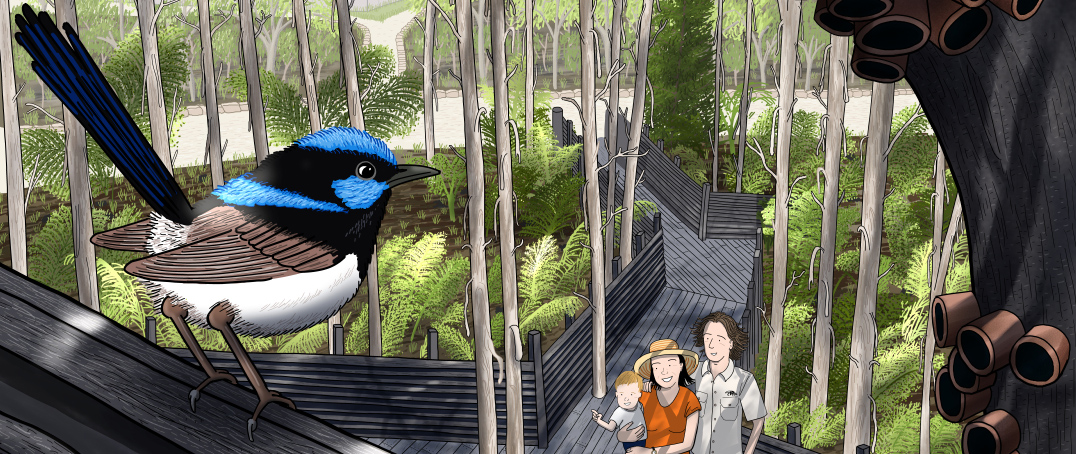
Next in my Canberra Birds artwork series: Superb fairywren at the Paperbark Treehouse, Canberra. A blue superb fairywren sits on the balcony of the Paperbark Treehouse in the Australian National Botanic Gardens in Canberra. Dappled light shines through the swamp paperbark trees, as a family looks up at the bird above. In the foreground is the metalwork on the charred surface of the trunk of the main tree. In the background is the Ian Potter National Conservatory, peeking out from behind the melaleuca trees.
Image detail: Superb fairywren at the Paperbark Treehouse, Canberra
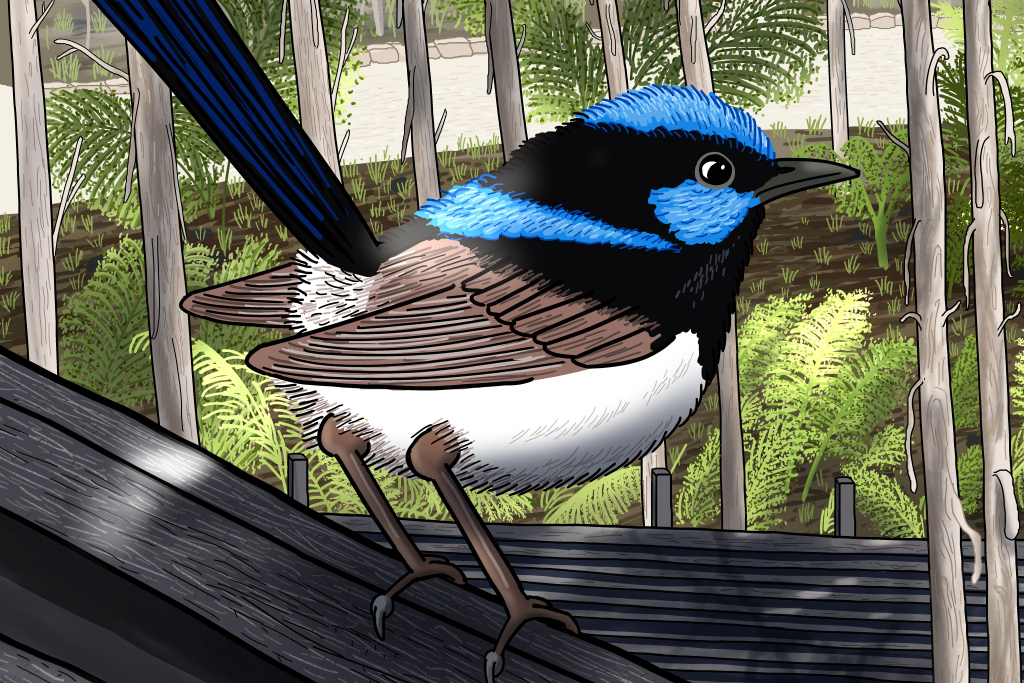
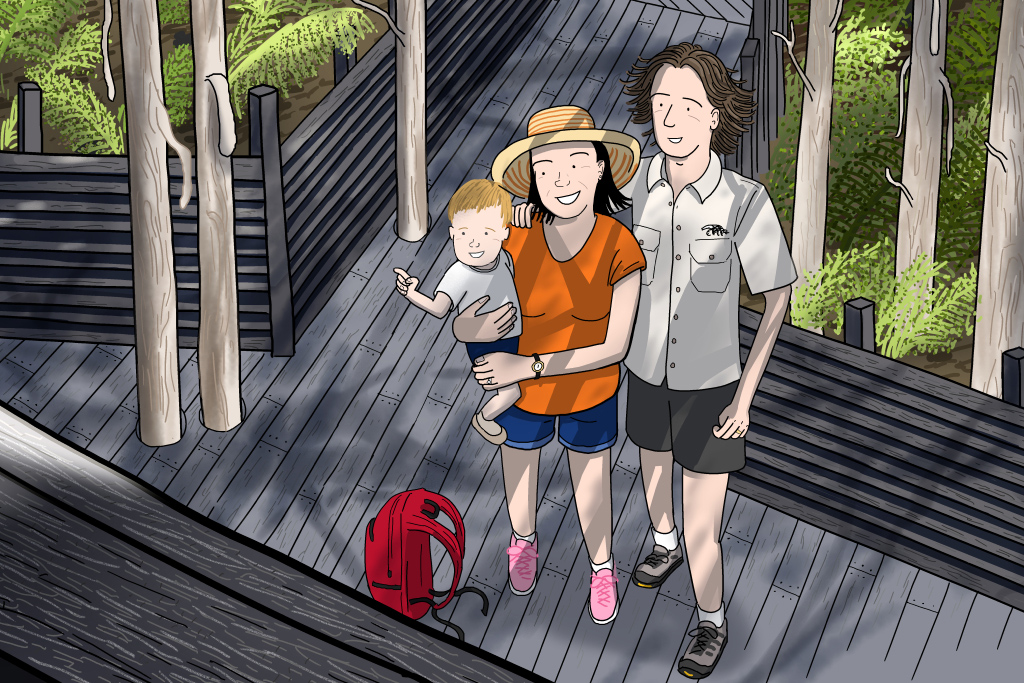
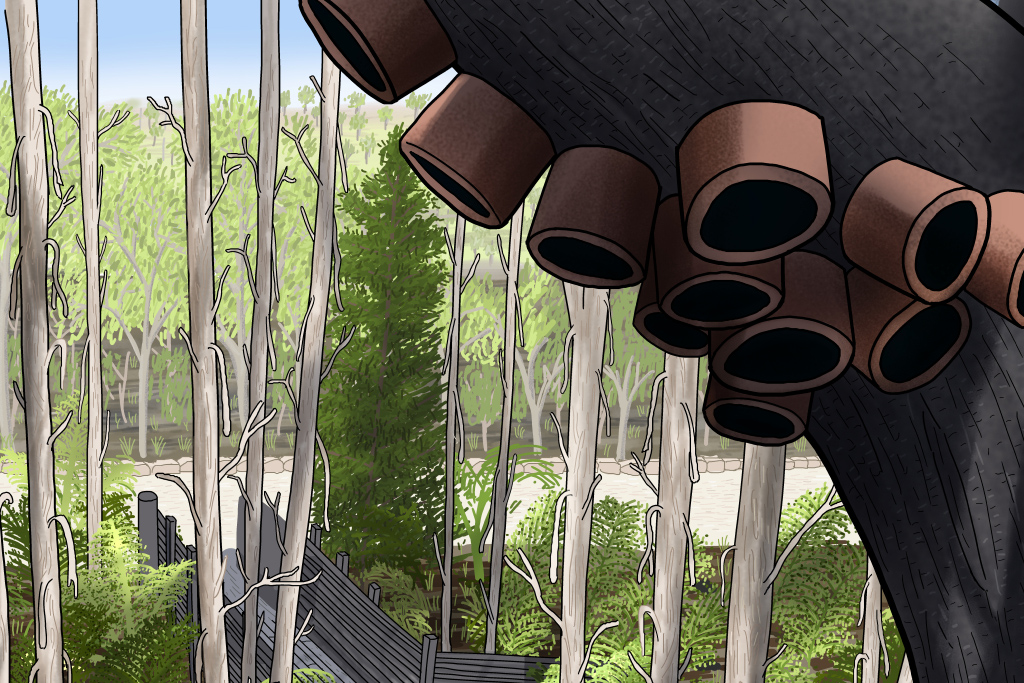
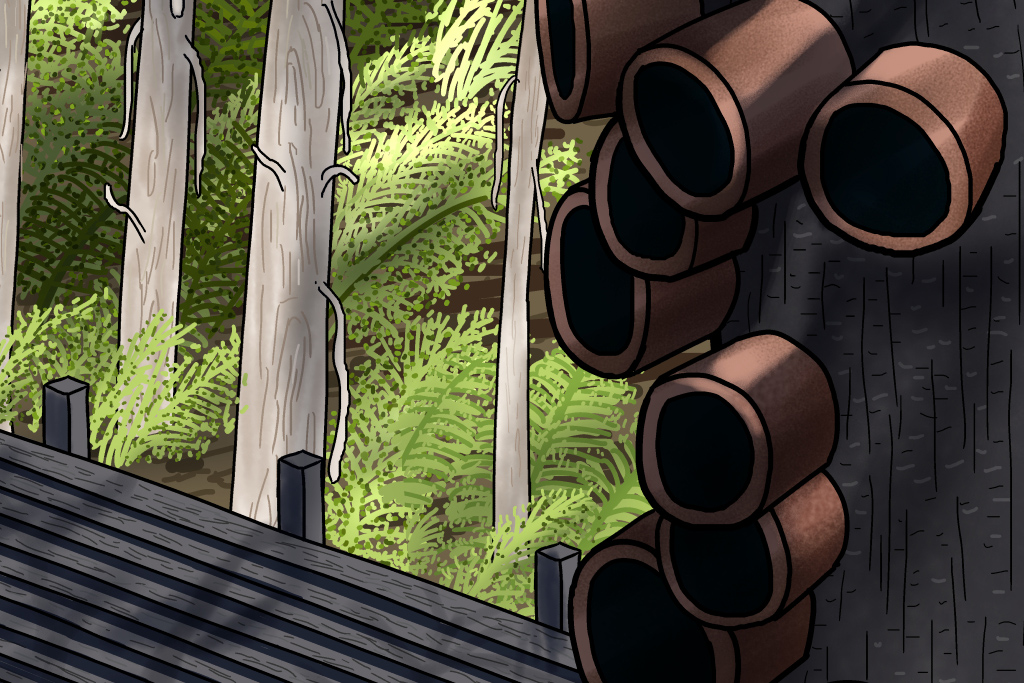
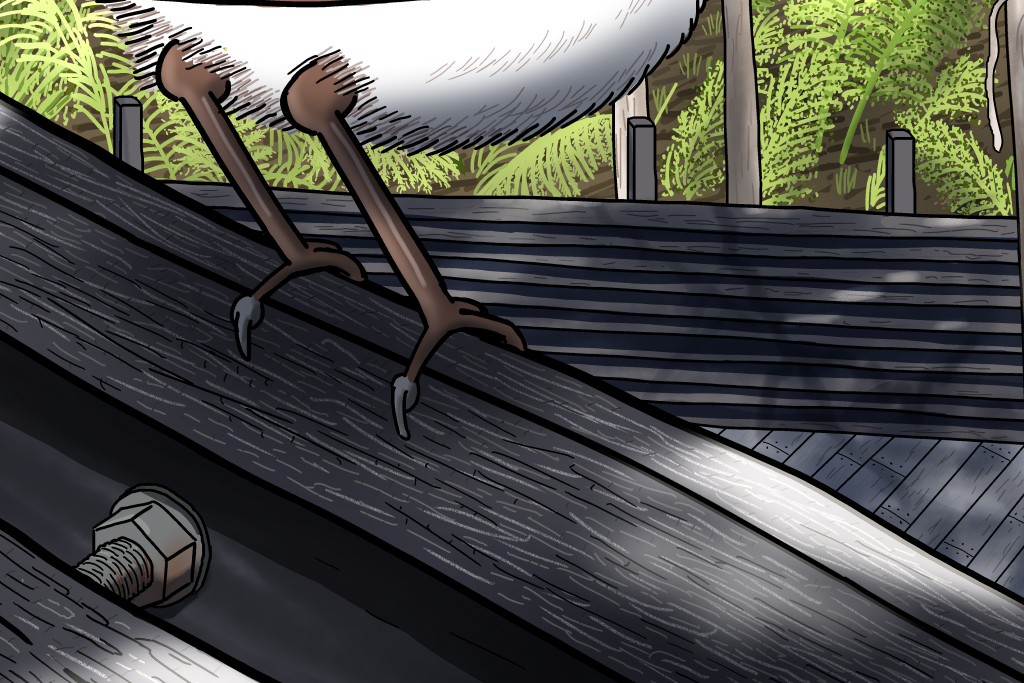
The bird: Superb fairywren
The superb fairywren is a bird species found in the south-eastern part of Australia. These insect-eating birds are known for the colouring of the males, which sport bright blue facial colours during the breeding season.
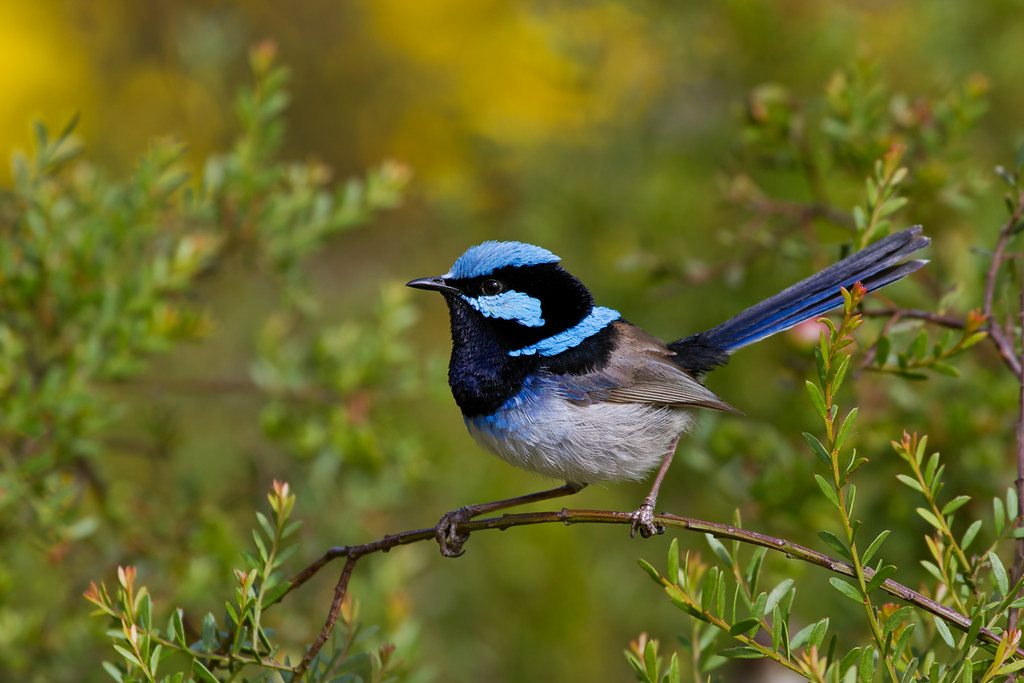
Image: Superb Fairy-wren (Malurus cyaneus) by Patrick Kavanagh
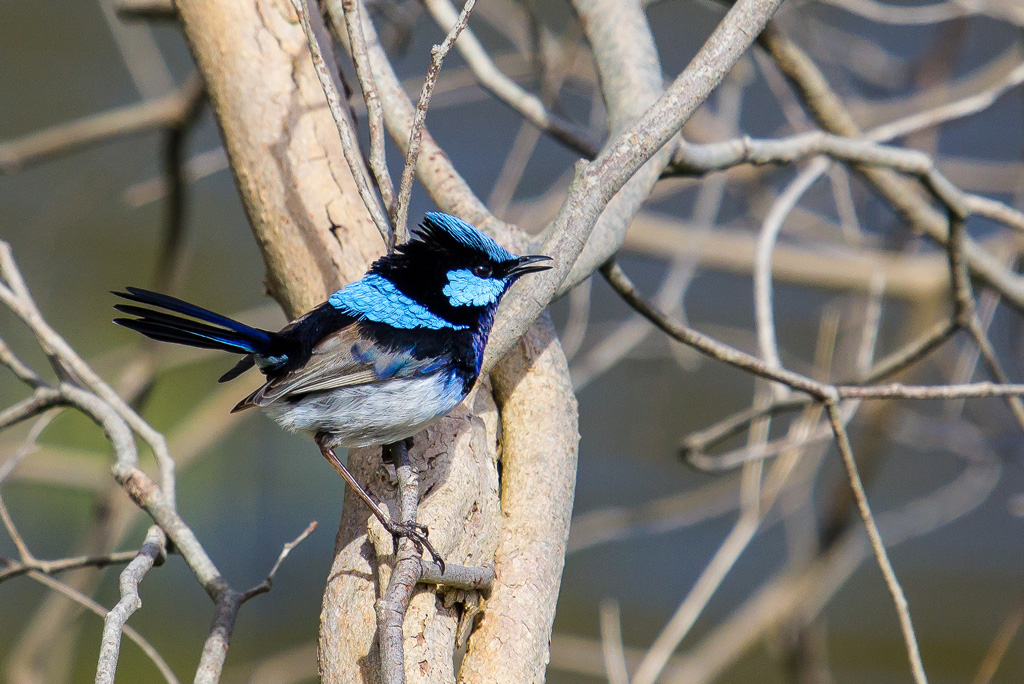
Image: Superb fairywren by Florian Rohart
By contrast, females and immature males have a dull fawn coloured appearance.
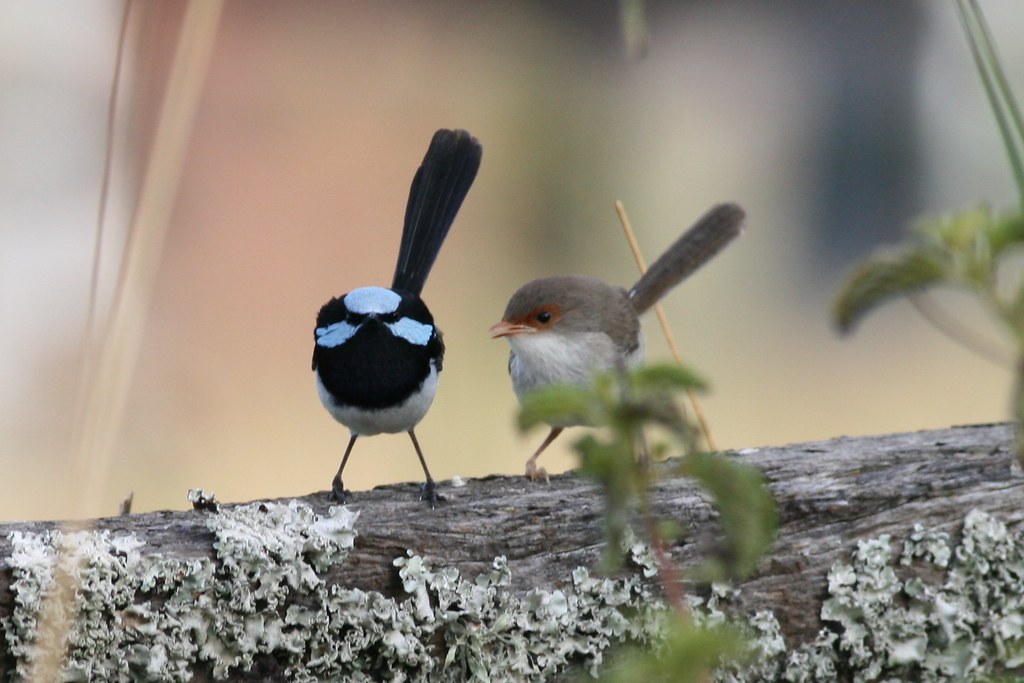
Image: Malurus cyaneus (Superb Fairy-wren) by Arthur Chapman
The species is highly popular, and even won the 2021 Australian Bird of the Year poll conducted by Guardian Australia and Birdlife Australia.
The location: the Paperbark Treehouse at the Canberra Botanic Gardens
The Paperbark Treehouse is one of the hidden gems of the Australian National Botanic Gardens in Canberra. So hidden that I visited the gardens perhaps 15 times before I stumbled upon it!
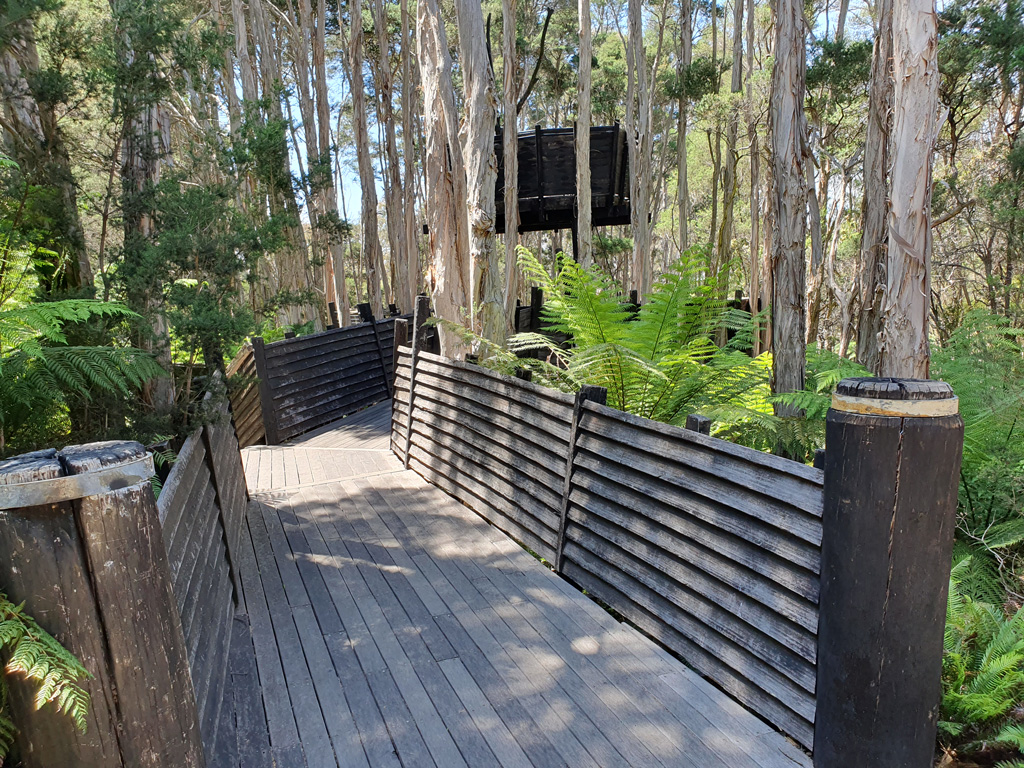
Housed in the existing Melaleuca Forest, and surrounded by a mature stand of paperbark trees, the project was designed as a nature play area for children and their families. Architects Cave Urban chose to use recycled timber, treating it with the Japanese Yakisugi technique which carbonises the timber to extend its longevity.
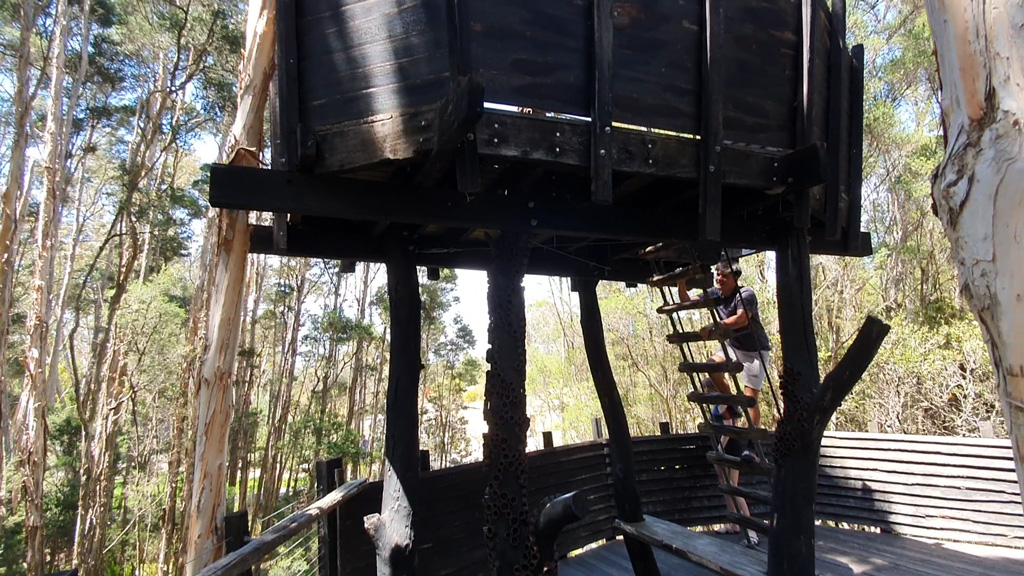
The whole structure and its surrounding boardwalk has a distinctively attractive black finish, owing to the charred colour of the flame-licked timber.
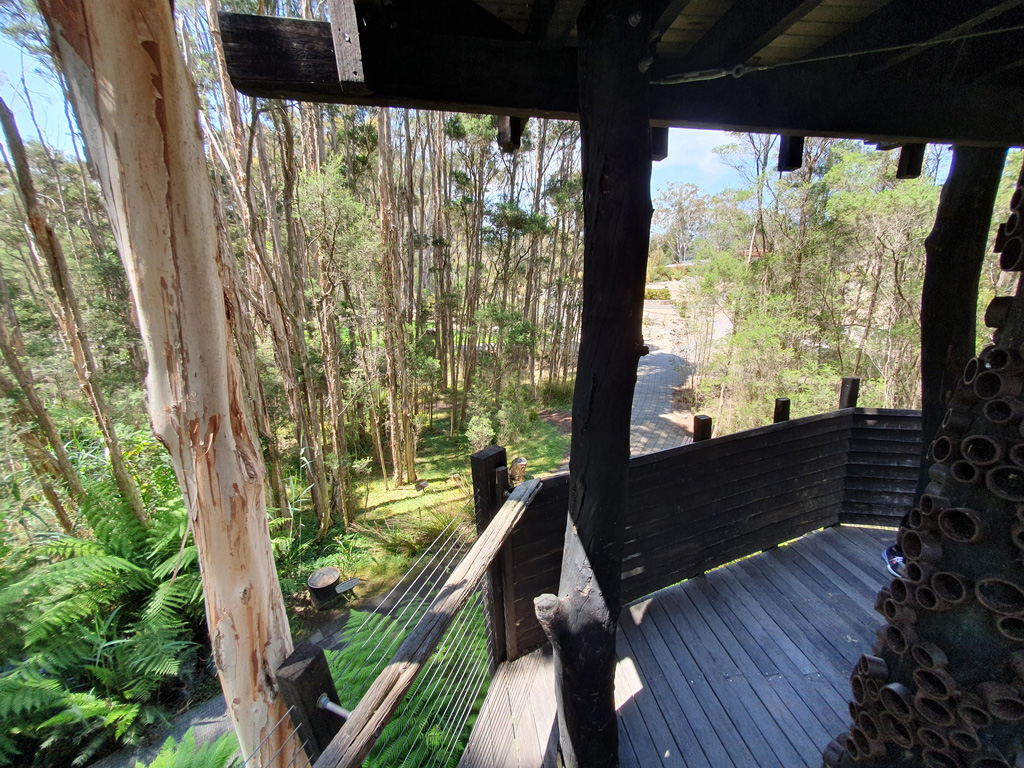
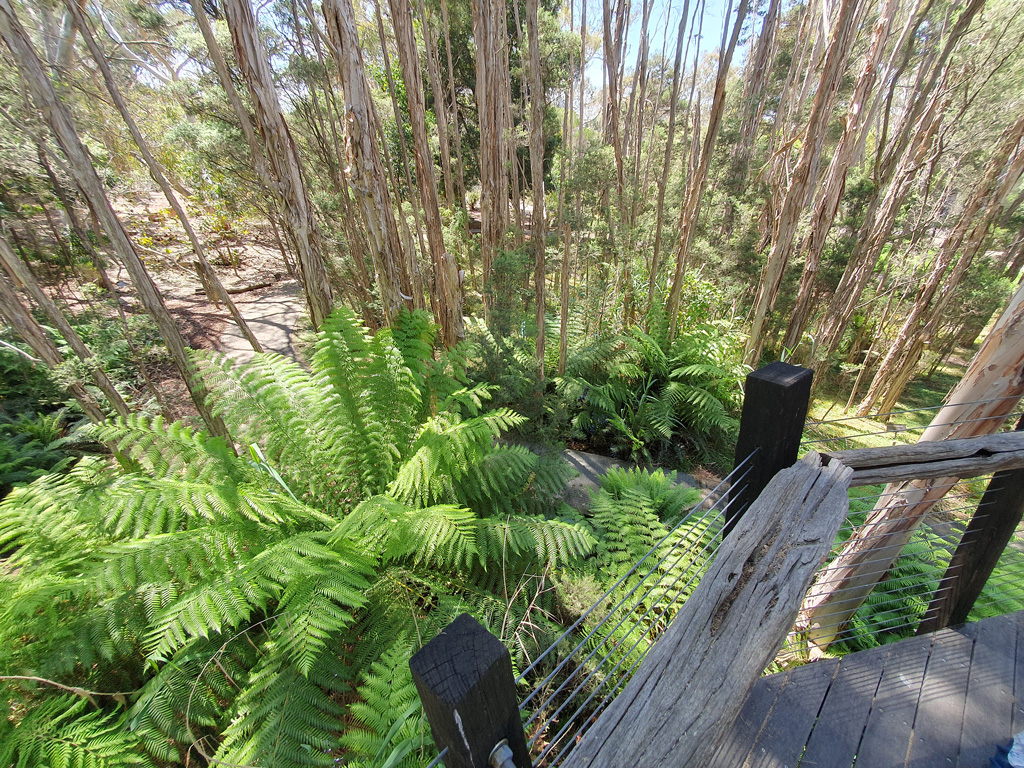
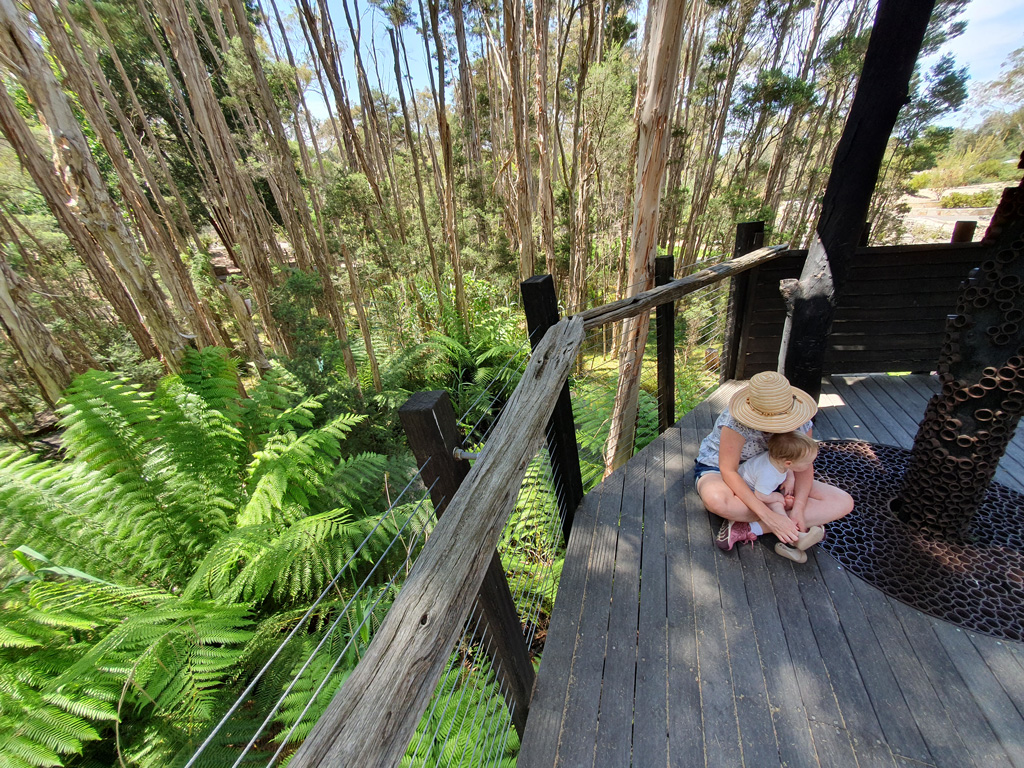
Opened in 2017, the Paperbark Treehouse was the biggest project ever funded by the Friends of the ANBG, and took 3 months to construct.
In some cases, the structure of the deck has been modified with circular holes that allow individual trees to grow through.
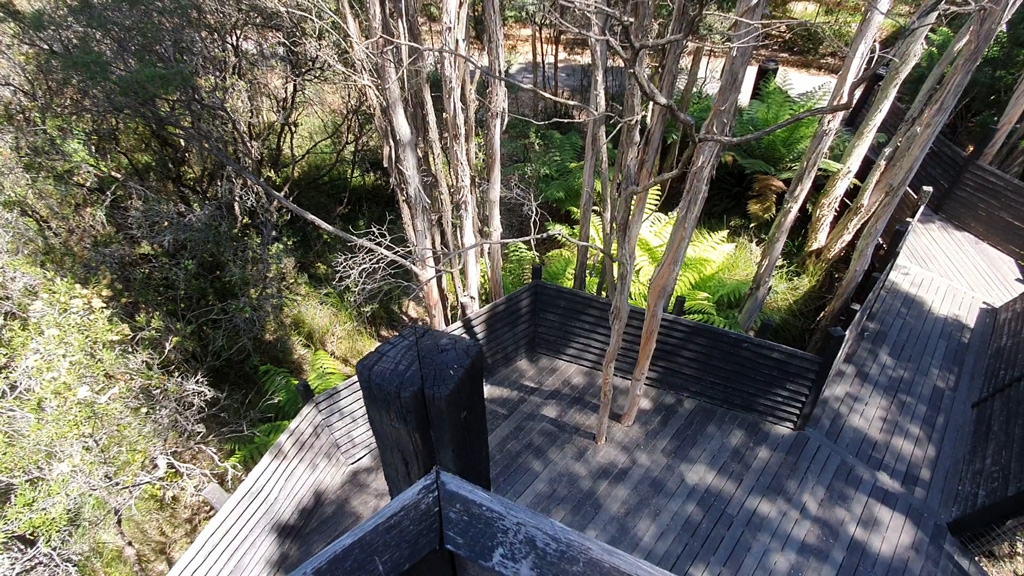
The treehouse is an artistic delight, featuring wonderful welded steel artwork by Chilean sculptor Carolina Pinto. The structure is greatly enhanced by her organic-inspired metalwork, which I featured in my artwork.
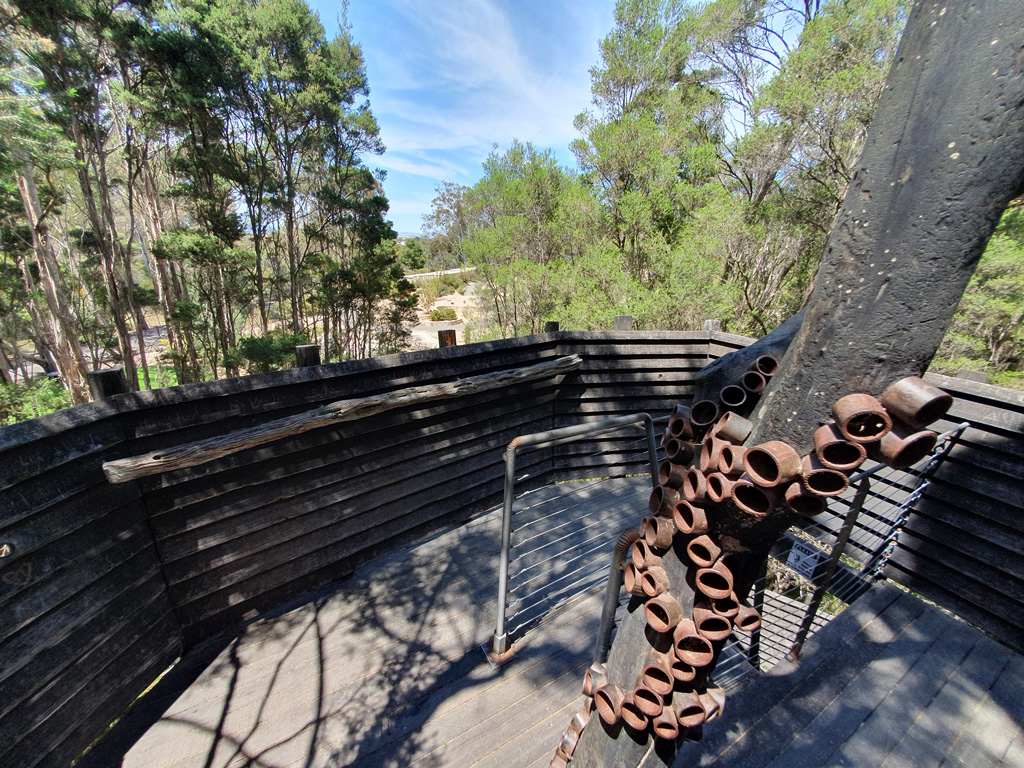
As a welcome departure from the risk-adverse modern world of public liability lawsuits, the Paperbark Treehouse features a crow’s nest accessible only by ladder, which visitors are encouraged to climb. From the top, visitors have access to the surrounding mature stand of maleleuca trees that surround the structure, as well as the nearby Banksia Garden. It put visitors up with the birds that occupy the forest, including the fairy wrens shown in my artwork.
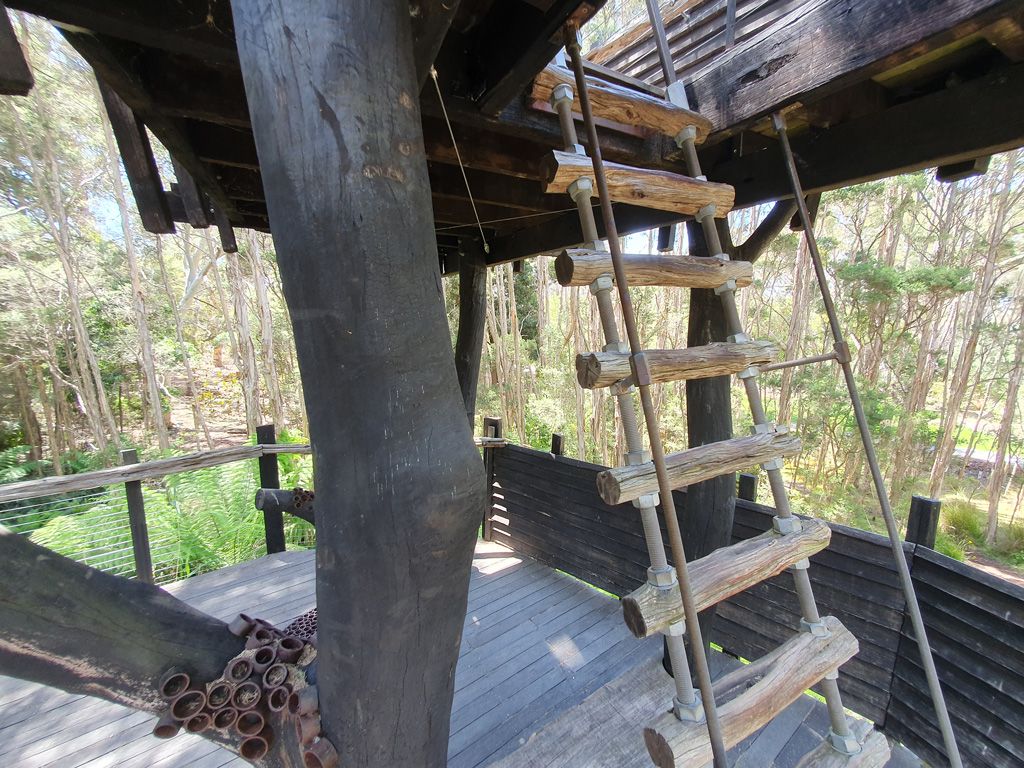
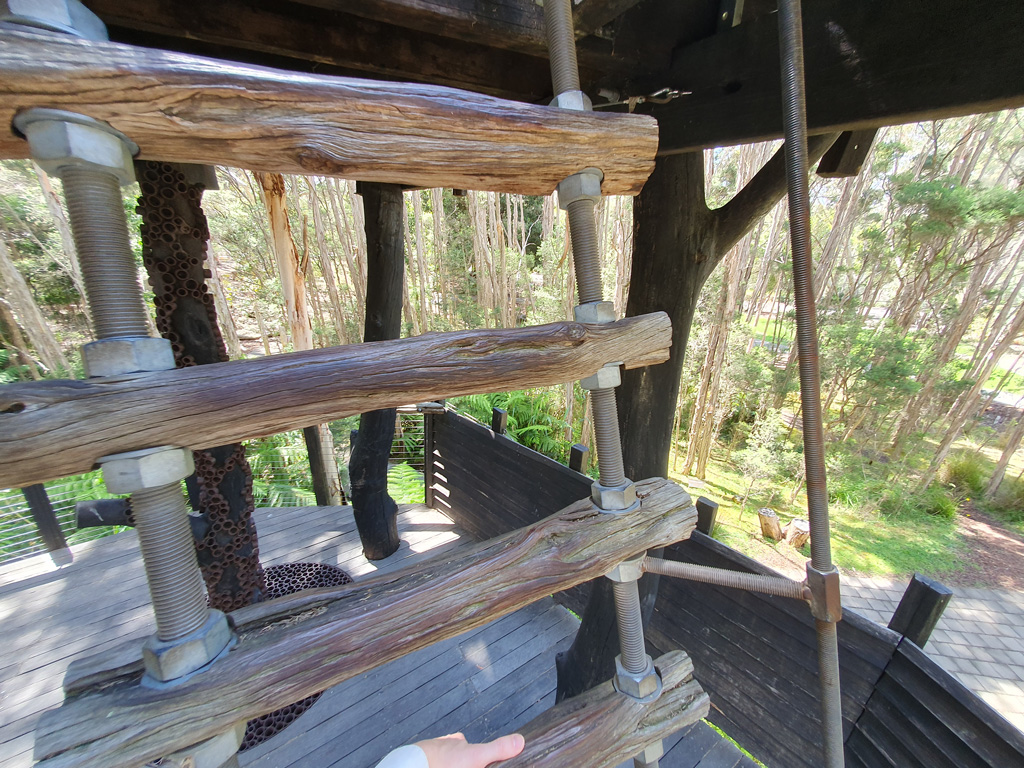
I made sure to include the industrial aesthetic of the structure’s bolts and nuts into my artwork. These are a wonderfully tactile feature of the Treehouse that is worth celebrating.
In the background of my scene I have drawn the Ian Potter National Conservatory, a cube-shaped glasshouse which is still under construction at the time that I drew the scene. It is years away from opening to the public, but I wanted to future-proof my artwork.
Postcards, greeting cards, art prints
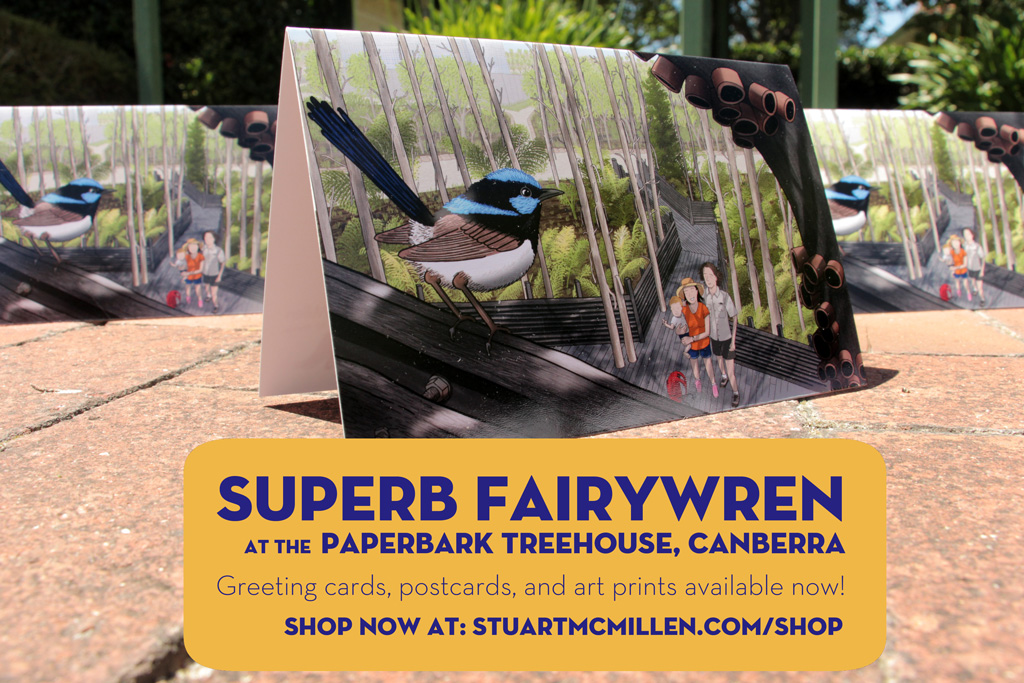
Support my work by buying this artwork as a postcard, greeting card or signed and numbered art print from my online store.
Visit the Superb fairywren at the Paperbark Treehouse, Canberra product range category, or use the following links for these items on my web store:
- Greeting card – Superb fairywren at the Paperbark Treehouse (11.7 x 18.2 cm size) – also available in my custom four-pack and custom eight-pack bundles of greeting cards
- Postcard – Superb fairywren at the Paperbark Treehouse (A6 size) – also available in my custom four-pack and eight-pack bundles of postcards
- Art prints – Superb fairywren at the Paperbark Treehouse (various sizes, pigment ink prints on archival paper)








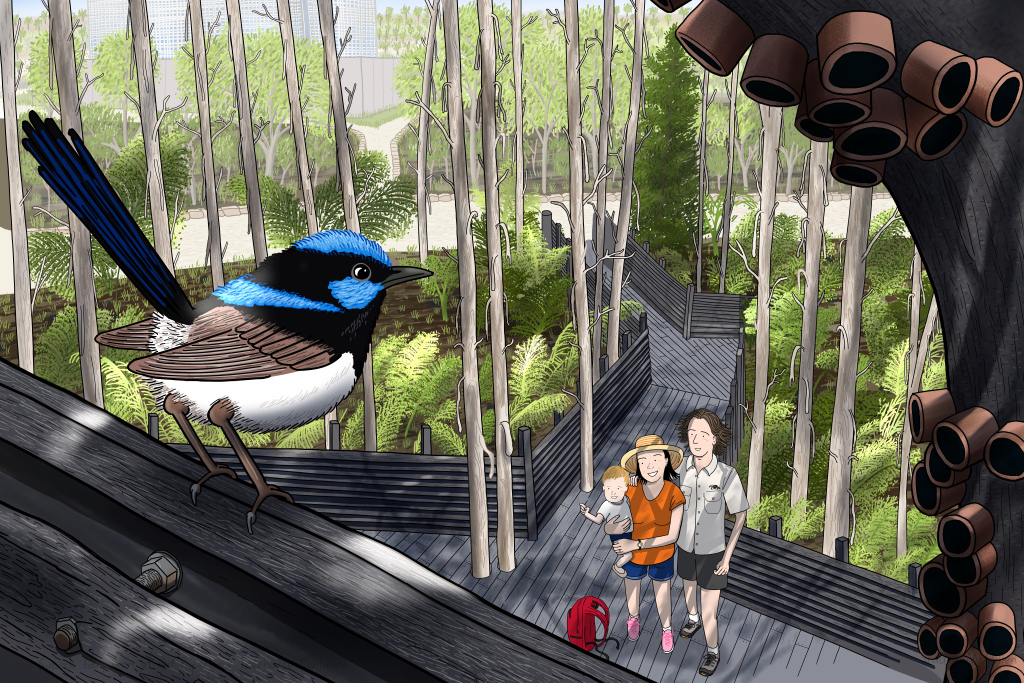



Comments